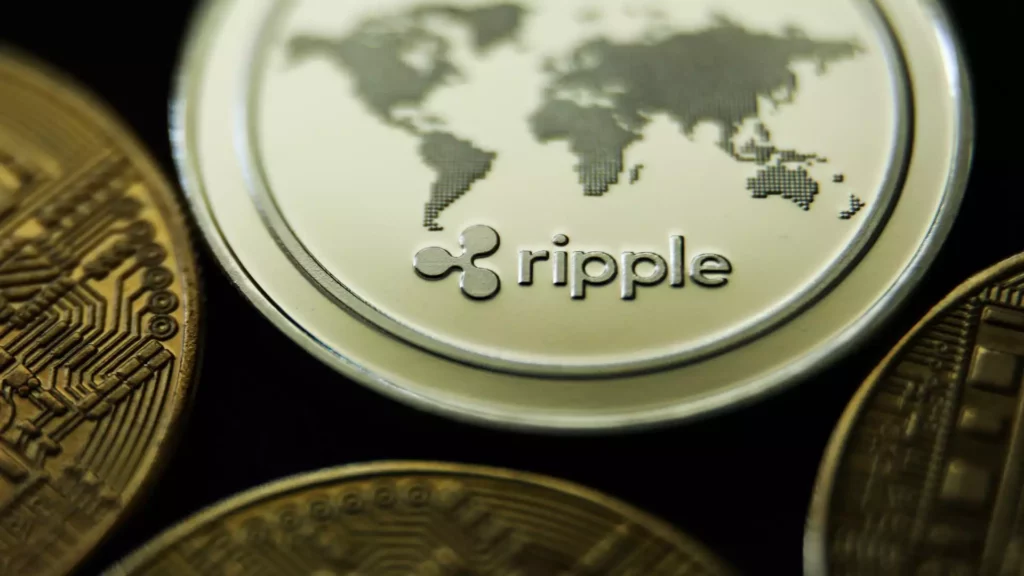Ripple, a well-known player in the cryptocurrency arena, is venturing into the burgeoning field of crypto custody services. The company’s recent announcement marks a clear intention to diversify its offerings beyond its primary focus on payment settlements and the XRP cryptocurrency. By establishing Ripple Custody, the San Francisco-based startup aims to provide banks and financial technology firms with robust solutions for storing and managing digital assets on behalf of their clients.
In the rapidly evolving world of cryptocurrencies, the concept of custody has gained heightened significance. Crypto custodians serve as critical intermediaries, safeguarding the private keys that grant access to digital assets. This role extends beyond simple storage; custodians ensure compliance with global regulations and facilitate transactions. As cryptocurrencies continue to integrate into mainstream finance, the demand for secure custodial services is surging, and the market is predicted to reach a staggering $16 trillion by 2030, as per the Boston Consulting Group.
Ripple’s entry into the crypto custody space comes at a time when the company is strategically positioning itself against established players in the industry, such as Coinbase, Gemini, and Fireblocks. The launch of Ripple Custody is not merely a rebranding but a comprehensive consolidation of its custody products, featuring innovative features designed specifically for banking and fintech clients. The integration of operational frameworks and policies tailored for compliance, alongside an enhanced user interface, reinforces Ripple’s commitment to providing a seamless customer experience.
A standout statistic from Ripple’s announcement is the impressive 250% year-over-year customer growth for Ripple Custody. Operating across seven countries, their client list includes significant financial entities like HSBC and DBS, which underscores Ripple’s growing influence in the market. This diversification strategy not only solidifies Ripple’s position but also highlights its foresight in anticipating a future where real-world assets, such as commodities and real estate, are tokenized and traded digitally.
One of the most distinguishing features of Ripple’s custody offering is its integration with the XRP Ledger, a blockchain platform known for its efficiency and low transaction costs. This integration provides clients access to a decentralized exchange that supports the trading of diverse digital assets without intermediaries. The ability to tokenize real-world assets could revolutionize how traditional financial assets are managed in the digital space, making it easier for institutions to operate within a decentralized framework.
Aaron Slettehaugh, Ripple’s Senior Vice President of Product, emphasized the advantages of these features in facilitating high-growth for cryptocurrency and fintech businesses. By offering secure and scalable custody solutions, Ripple aims to alleviate the concerns surrounding asset security and regulatory compliance, which are crucial elements for any institutional investor considering a shift into the crypto market.
Challenges and Regulatory Concerns
Despite Ripple’s optimistic advancements, the company faces ongoing challenges, particularly pertaining to the legal status of its flagship cryptocurrency, XRP. Recent developments, including the U.S. Securities and Exchange Commission’s (SEC) appeal regarding the classification of XRP as a security, have prompted significant price fluctuations and market uncertainty. Ripple’s long-standing legal battle with the SEC is indicative of the broader regulatory hurdles facing the crypto industry.
As Ripple strives to establish itself firmly within the custody arena, it must navigate these challenges effectively. The ultimate resolution of its legal issues will play a crucial role in shaping the market’s perception of Ripple’s offerings and the legitimacy of XRP.
Ripple’s exploration into crypto custody represents a significant and strategic pivot for the company as it seeks to carve out a niche in a competitive landscape. The integration of technology, compliance assurance, and an expansive vision for the tokenization of assets positions Ripple well for the future. While inherent challenges exist, particularly concerning regulatory scrutiny, Ripple’s proactive approach could very well redefine its trajectory in the crypto market. As the demand for secure custody solutions increases, Ripple’s move could be a crucial step toward aligning with the evolving dynamics of the financial ecosystem.

